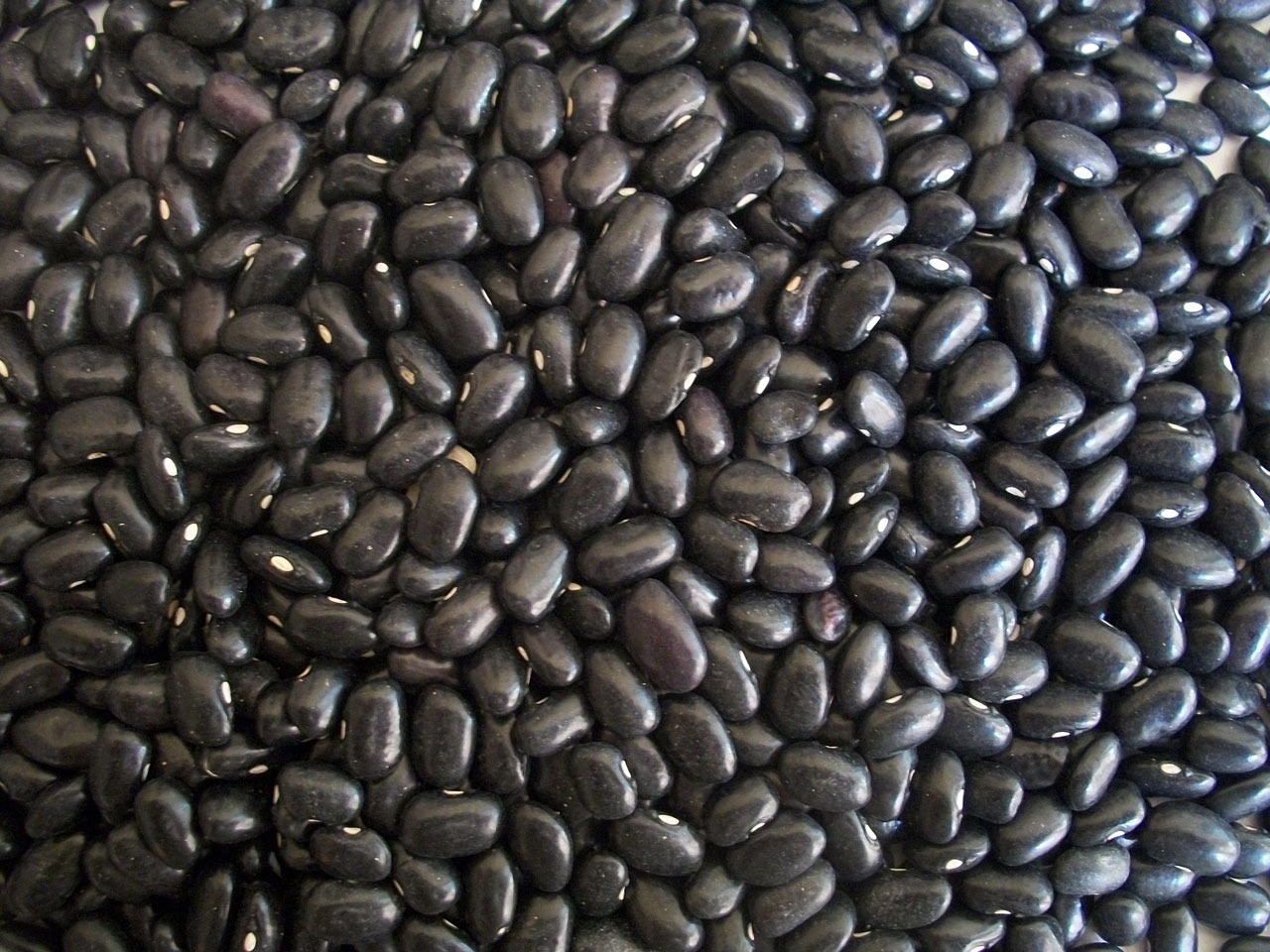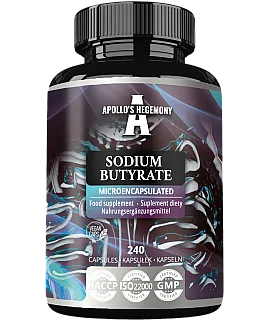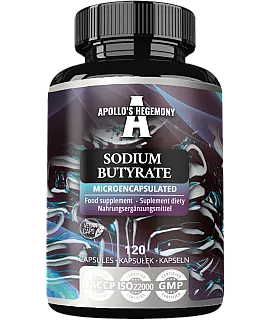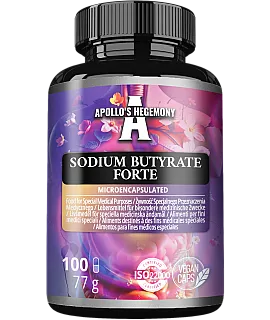Black beans - health properties

Black beans are categorized as legumes that are rich in protein, carbohydrates, dietary fiber and vitamins (especially B vitamins), minerals, antioxidants and plant sterols. It therefore contains a number of valuable nutrients with health-promoting properties. Let's check out the health benefits of regularly including black beans in the human diet.
- Nutritional properties of black beans
- Health properties of black beans
- Where to buy black beans?
- How to use black beans in the kitchen?
- Black beans - contraindications
Nutritional properties of black beans
Black beans are a small, tasty and nutritious variety of common bean that is particularly popular in Latin American cuisine. It is particularly valued for its high nutritional value and the presence of numerous bioactive substances that exhibit antioxidant and anti-inflammatory properties and play an important role in the prevention of many diet-related diseases. 100 g of black beans in dry form (before cooking) contains 296 kcal, 23 g of protein, 36 carbohydrates (including sugars - 2.3 g), 1.3 g of fat and as much as 24 g of dietary fiber. Black beans are an excellent source of protein, especially in plant-based diets that eliminate meat, fish, eggs and dairy. Black bean protein is of high quality, as it contains sufficient amounts of all essential amino acids. The only essential amino acid that is found in relatively low amounts in black beans is methionine. Black beans are a good source of most B vitamins, especially vitamin B1 (thiamine), and folic acid. In addition, black beans are extremely rich in minerals such as potassium, magnesium, iron, calcium, copper, manganese, zinc and phosphorus. Black beans contain anthocyanins, which give them their characteristic dark color. Anthocyanins are well known for their strong antioxidant properties, helping to protect the body's cells from the harmful effects of reactive oxygen species. Current research shows that regular consumption of foods rich in anthocyanins reduces the risk of cardiovascular and neurodegenerative diseases (Alzheimer's and Parkinson's disease), as well as obesity and type 2 diabetes. Other antioxidants that naturally occur in black beans include: antioxidant vitamins (A and E) and flavonoids (myricetin, quercetin and kemferol).
Health properties of black beans
Black beans can promote the reduction of excess body weight and reduce abdominal fat. High in protein and dietary fiber, black beans increase satiety after eating, making it easier to avoid snacking between main meals. Black beans also reduce the risk of developing cardiovascular disease, as they help lower blood pressure, LDL fraction cholesterol (the so-called "bad" cholesterol) and inflammatory markers in the blood. Moreover, black beans have a low index and glycemic load (GI = 20), so they have a beneficial effect on blood glucose and insulin levels, especially in people with insulin resistance, type 2 diabetes and metabolic syndrome. Replacing red meat in the diet with black beans can significantly reduce blood glucose, insulin, total cholesterol, LDL fraction cholesterol and triglycerides. Black beans may also exhibit anticancer properties and play an important role in the prevention of cancer, especially colon cancer.
Where to buy black beans?
Black beans are available in Polish grocery stores as a dry product for cooking (500 g package) and in canned form (200 g or 400 g package). Black beans can be purchased not only in supermarkets and stationary health food stores, but also in many online stores offering healthy and organic food. In hypermarkets, black beans are usually found on store shelves in the health food section. The cost of black beans in dry form is about PLN 10 for 500 g, while canned black beans are about PLN 4 for 400 g.
How to use black beans in the kitchen?
Both dry and canned black beans find a wide range of culinary applications. Black beans have small seeds that are soft and quite sweet in taste when cooked. For example, black beans can be used to make a delicious stew, soup, salad, cutlets or sandwich paste. Be sure to pre-soak black beans for at least 12 hours before cooking, and then cook the rinsed beans until tender in fresh, unsalted water without a lid for about 60 minutes. Black beans are recommended to be salted only at the end of cooking.
Black beans - contraindications
Despite the high nutritional value and a variety of health-promoting qualities, not all people can safely consume black beans. As it turns out, black beans are a source of oligosaccharides, including: stachyose, raffinose and verbascose, which can ferment in the intestines, causing bloating, abdominal pain, excessive intestinal gas and diarrhea. Therefore, patients with irritable bowel syndrome (IBS) and small intestinal bacterial overgrowth (SIBO) should not exceed a daily black bean intake of 45 grams, which was determined by researchers at Australia's Monash University to be relatively well tolerated on a low FODMAP diet. Black beans can also be problematic for the elderly, and even more so for those with chronic gastrointestinal diseases who require an easy-to-digest diet with a restriction on bloating products. In addition, black beans may also sensitize some people who have a known food allergy to soy and/or peanuts.
Sources:
- Reverri EJ, Randolph JM, Steinberg FM, et al: Black Beans, Fiber, and Antioxidant Capacity Pilot Study: Examination of Whole Foods vs. Functional Components on Postprandial Metabolic, Oxidative Stress, and Inflammation in Adults with Metabolic Syndrome. Nutrients. 2015 Jul 27;7(8):6139-54.
- Clark JL, Taylor CG, Zahradka P.: Black beans and red kidney beans induce positive postprandial vascular responses in healthy adults: A pilot randomized cross-over study. Nutr Metab Cardiovasc Dis. 2021 Jan 4;31(1):216-226.
- Mullins AP, Arjmandi BH.: Health Benefits of Plant-Based Nutrition: Focus on Beans in Cardiometabolic Diseases. Nutrients. 2021 Feb 5;13(2):519.
- Barreto NMB, Pimenta NG, Braz BF, et al: Organic Black Beans (Phaseolus vulgaris L.) from Rio de Janeiro State, Brazil, Present More Phenolic Compounds and Better Nutritional Profile Than Nonorganic. Foods. 2021 Apr 19;10(4):900.
- Fonseca-Hernández D, Lugo-Cervantes EDC, Escobedo-Reyes A, et al: Black Bean ( Phaseolus vulgaris L.) Polyphenolic Extract Exerts Antioxidant and Antiaging Potential. Molecules. 2021 Nov 6;26(21):6716.
 ⮜ Previous article
⮜ Previous article
Biggest mistakes for reduction
 Next article ⮞
Next article ⮞


